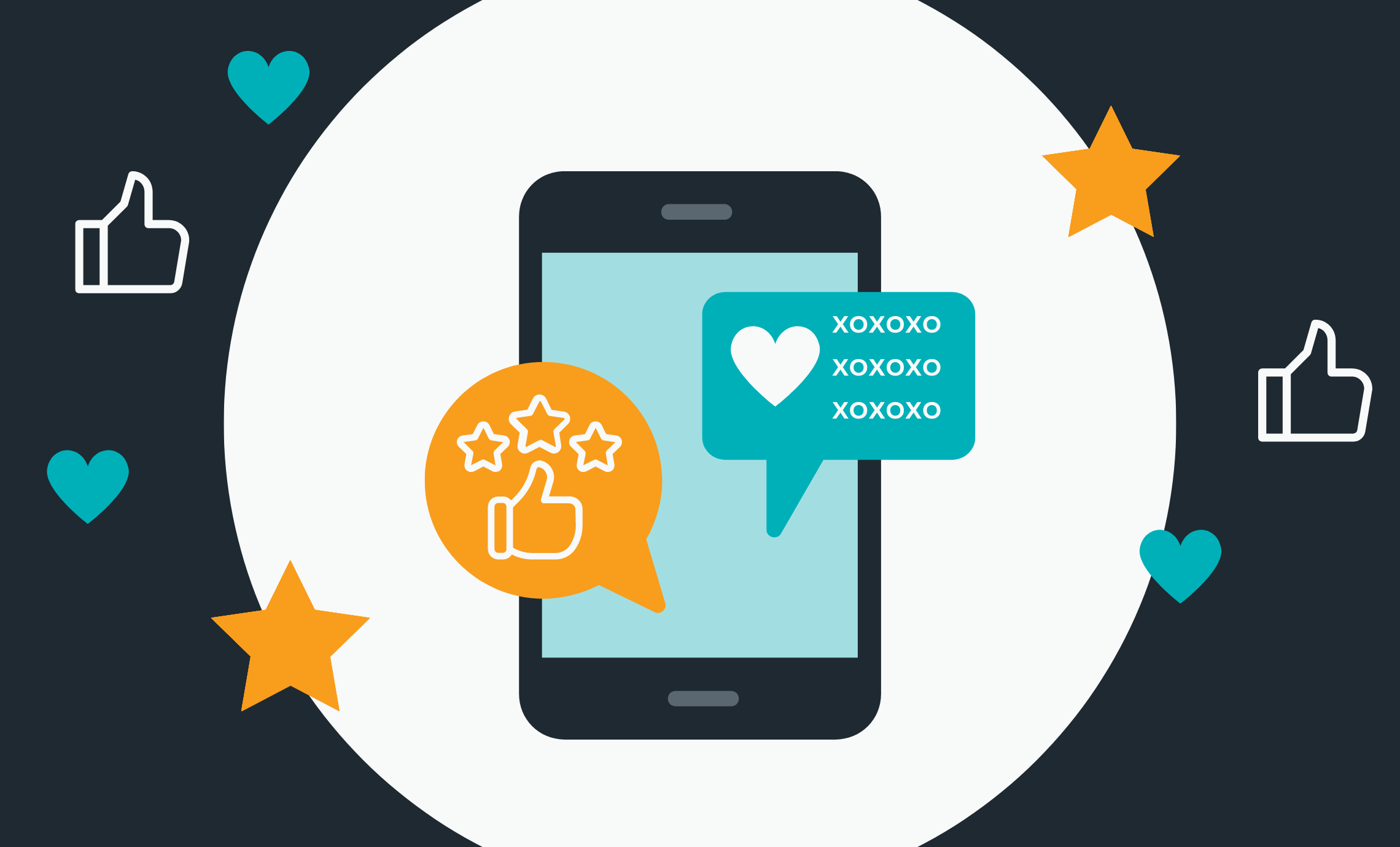From ARS to chatbots, beacons, and heat maps, the event industry has a distinctive language of its own – especially when it comes to digital and event technology.
Bookmark this page as your go-to guide for the most common event technology terms.
Analytics:
The process of measuring, collecting, analyzing and reporting all data associated with your event.
Using one event technology provider who provides comprehensive analytics gives you a single view and insights into everything about an event, attendee demographics or behavior, and other activities like expo floor traffic and dwell times.
Be sure to ask exactly what kinds of analytics you’ll receive, and if they’re accessible in real-time in an easy-to-use portal.
Application Programming Interface (API):
The commands, functions and protocols programmers use to get different software systems to “talk” to each other.
You’ll want your event app to seamlessly integrate with industry lead customer relationship management systems (CRMs) and database systems to reduce siloed data and streamline processes. Request a list of systems your event provider has developed APIs for.
Association:
Usually a non-profit trade group designed to further a specific profession, by providing education and networking for members.
Attendee:
A person who participates in a conference, industry trade show or other meeting.
Attendee Networking and Matchmaking:
A way of using technology to make it easier for event attendees to find, communicate, network and even schedule meetings with like-minded attendees.
Look for an event app that allows attendees to opt-in to this feature. For those attendees concerned with data privacy, information is only shared with those who opt-in.
Audience Response Systems:
Originally made popular on “Who Wants to Be a Millionaire?”- this kind of feature allows speakers or presenters to interact with audiences in real-time.
Sophisticated event apps have replaced the need for separate clickers that had to be handed out and collected in a session. Attendees now simply use an event app with this feature on their own mobile devices to share feedback or respond to speaker’s polling questions.
Augmented Reality:
Technology that superimposes a computer-generated image or digital layer over a user’s view of the real world – think Pokémon GO.
With the AR market projected to grow to $90 billion by 2020, event organizers should keep this emerging technology in mind for interactive maps and wayfinding, networking and more.
Beacons:
iBeacons are Apple’s Bluetooth-powered location systems. Organizers use them throughout conference or event venues to deliver alerts and engage attendees with specific location-based information.
More and more, beacons are part of an event analytics solution to measure real-time floor traffic –including attendee counts by hour/day, expo floor dwell times and visit frequency.
Big Data:
Data collected from a variety of applications and systems. Due to the sheer volume of event data available today, insights can be hard to understand if data analysis is done manually.
Chatbots:
An Artificial intelligence (AI) program designed to respond and carry on human-like conversation in text or digital chats. Chatbots are currently trending for real-time customer service interactions.
Conference:
A meeting of people who discuss a specific topic or share similarities around a certain field or interest.
Conference Notes:
Most event apps allow attendees to take notes on their mobile devices. But some event technology providers, like Core-apps, feature more robust capabilities that provide the ability to use their mobile device as a second screen engagement strategy and seamlessly engage with conference presentations.
Content Management System (CMS):
The back-end system where you or the event app provider load conference data, attendee info, schedule items, and more.
Make sure your event app’s CMS is easy-to-use and intuitive to make loading information fast and easy.
Convention Center:
A building or set of buildings designed to hold people – sometimes hundreds of thousands – to come together in one destination for education, learning and networking.
Corporate Events:
A gathering usually sponsored by a business or association designed for employees, business partners, clients, prospects or members. Can include conferences, seminars, hospitality events, or team building events.
Dashboard:
A visually-driven data tool that displays key event metrics at-a-glance.
Ask your event app provider if dashboards can be customized based on your specific goals or KPIs.
Data Integration:
The ability to easily combine data from multiple (and often siloed) sources into meaningful and valuable information.
Exhibitor:
A company, organization or association who typically pays for a dedicated space to showcase their products and solutions at a trade show.
Event Apps:
An app for mobile devices that organizers use to create a better attendee experience. Popular event app features include:
- Agenda builders
- Meeting schedulers
- Lead capture
- In-app attendee networking and matchmaking
- Ability to share via social media channels
- Interactive floor maps for easy navigation and wayfinding
- Session check-in and evaluation surveys
- Exhibitor listings
Event Organizer:
The person or association handling all aspects of scheduling, planning and hosting an event or trade show.
Expo:
The space where exhibitors set-up their booths or displays, allowing attendees to visit, meet and network with company representatives.
When creating content for your event app, don’t forget to include a list and map of exhibitors on the expo floor to make it easy for attendees to find companies.
Content Feed:
Just like on social media platforms, refers to a list of recent activity or updates from other event attendees, sponsors or the organizers that shows up in an event app.
For Profit Events:
An event specifically designed to generate revenue because it’s a product of a business, typically organized by an independent event organizer.
Gamification:
The use of games, challenges, activities and more to increase attendee engagement.
Incorporating gamification strategies in a conference event apps is popular motivation for getting attendees to do something – like sharing their experience on social media, visiting exhibitors’ booths or taking surveys.
Geofence Alerts:
Based on attendees’ physical boundaries, the ability to send notifications or alerts through an event app on their mobile device.
Heat Maps:
A way to represent data visually that uses colors to indicate the level of activity.
Beacons are used to generate heat maps and help organizers identify traffic patterns or popular areas in the exhibit hall.
Independent Events:
A stand-alone event not affiliated with a trade organization or other brand.
iPad Catalog App:
Instead of printing, shipping and storing expensive printed materials, exhibitors frequently use these to make a dynamic product catalog to have on hand within their booth.
As an example, Showcase XD is an easy-to-use iPad catalog app designed to enhance an exhibitor’s trade show presence.
Kiosk:
A physical structure, paired with software, to assist event attendees with wayfinding or finding information.
Live Events:
Happening at a specific time and location, an event designed specifically to have attendees participate physically in-person.
Live Polling:
Used to get a pulse of understanding or add interactivity, speakers interact with attendees by taking real-time surveys through their mobile devices.
Interactive Maps:
Many event apps feature static exhibit or expo floor maps. But apps with interactive navigation make it much easier to help attendees find the shortest routes to a desired destination within a conference venue.
Native Event App:
An event app downloaded from the App Store or Google Play. Native apps only require an Internet connection to update data and are ideal for use at trade shows and convention centers where connectivity may be spotty or limited.
Push Notifications/Alerts:
A message that pops up on a mobile device.
Many event apps can send a message to attendees at any time, like a reminder that the general session is about to start.
Registration:
The ability for attendees, speakers and even exhibitors to sign up to participate in a conference or event.
Tip: Make sure your registration system integrates with your event app to keep your list of attendees or exhibitors up-to-date.
Targeted Push Alerts:
Similar to a push notification, with the exception that the message is only sent to a certain audience or segment.
For example, organizers may send a targeted alert to all attendees in the exhibit hall to visit a specific sponsor booth.
Trade Show:
As defined by EXHIBITOR Magazine, “an exposition related to a particular industry or group, and open only to the members of that group.”
User Interface (UI):
The overall look and feel of your event app. A well-designed UI makes it easy for attendee to find what they’re looking for.
You’ll also want to work with an event app provider who can customize the UI to align with your brand standards.
Virtual Reality:
A computer-generated simulation of a 3D environment that uses special equipment, like the popular Oculus Rift, Samsung Gear VR or HTC Vive/Stream VR.
Wayfinding:
The process of helping attendees navigate from place to place within a conference center, event venue or on a trade show floor.
Web-Based App:
Also known as HTML 5 app. Web-based apps aren’t distributed through the App Store or Google Play and essentially are a mobile website which requires continual Internet connection for real-time updates.
What event technology term did we miss and leaves you puzzled? Suggest additions to this list by emailing us at info@core-apps.com.

